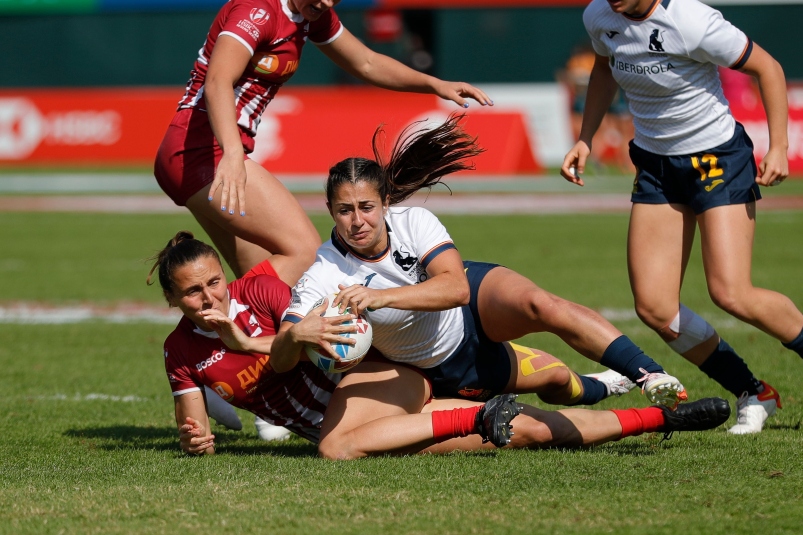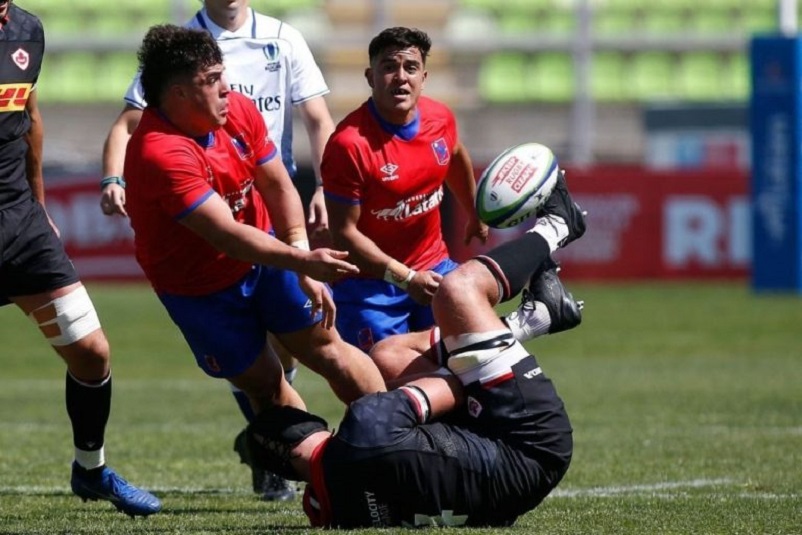 Vast majority of players diagnosed with concussion likely to miss their next match owing to new criteria
Vast majority of players diagnosed with concussion likely to miss their next match owing to new criteria
Any player eligible to return to play on the 7th day after injury would only do so with the approval of an independent concussion consultant
Changes implemented globally from 1 July following recommendations by World Rugby’s independent Concussion Working Group
Stand down periods remain for community game where there is no full-time medical supervision
World Rugby is evolving its Graduated Return to Play (GRTP) protocols for the elite game following the latest review of scientific evidence and rugby-specific research by federation’s expert independent Concussion Working Group.
Underscoring World Rugby’s commitment to establish rugby as the most progressive sport in the world on player welfare, the evolved approach will see players, including those with a history of concussion or who are removed from a match with obvious concussion symptoms, sit out from play for a minimum of 12 days, likely missing their next competitive match.
No player will return earlier than the 7th day after injury, and any player’s return will need to be approved by an independent concussion consultant.
World Rugby’s approach to managing concussion within the game continues to be led by scientific evidence and independent expert opinion. The individualised rehabilitation approach in the elite game will remain under review, as does the Graduated Return to Play guidelines for the community game, which remain unchanged.
The new protocols will come into effect from 1 July for elite competitions kicking off after that date.
Commenting on the new individualised rehabilitation approach to managing a return to play World Rugby Chief Medical Officer Dr Eanna Falvey said: “This individualised rehabilitation approach supports our mission that the welfare of players comes first. It mirrors our promise to continually monitor, review and evolve our protocols based on scientific advice and evidence.
“Rugby is a leading sport in head-injury management, but we never stand still. It’s not just a new protocol – it’s going to be a new mindset for coaches and players. Our approach means it is now overwhelmingly likely a player diagnosed with a concussion won’t play in their team’s next match. World Rugby firmly believes that scientific evidence supports our protocols, but we are continually monitoring and testing them to ensure that they are fit for the modern game.
“We recognise that there are differences in concussion symptoms and concussion history and this process enables us to further protect elite players by individualising their rehabilitation. It also keeps in place all the benefits of the previous protocols which have been so successful in beginning to tackle under reporting of symptoms which evidence shows that, while improving, remains an issue.
“I would like to thank the members of the independent concussion working group for all their efforts in getting us to this point.”
Welcoming the individualised rehabilitation approach, World Rugby Independent Concussion Working Group member Dr Bob Cantu said: “World Rugby continues to listen to our advice without hesitation, and we applaud the diligent approach by the team to bring about these changes. The Individualised Rehabilitation protocols ensure that rugby players are playing a game, governed by the very latest scientific evidence and that is exactly as it should be.
“As a working group, we discussed the full range of options from mandating a longer stand down period for all player through to keeping the existing protocols in place and the consensus of the group is that an approached based on the circumstances of the individual involved is undoubtedly the best way forward.”
World Rugby Chief Executive Officer Alan Gilpin added: “World Rugby will never stand still on player welfare and once again we are putting those words into action in line with our six point plan. We will continue to work with players across the world, at all levels of the game, to educate the importance of brain health and of reporting symptoms where they occur, while doing everything we can to reduce the risks.
“Rugby is a game that bring immense benefits to those who play, benefits which far outweigh the risks. However, we know that any collision sport such as ours will result in injury and it is incumbent upon us to provide our players with the best advice we can and that is exactly what we’re doing with these Individualised Rehabilitation protocols.”
International Rugby Players, who are represented on the independent Concussion Working Group and significantly input across all welfare-related areas, have outlined the elite men’s and women’s playing community’s support for the Individualised Rehabilitation protocols.
International Rugby Players Head of Player Welfare Conrad Smith said: “The key to this working – and the important part in changing the culture around concussion – is that players report their head injuries and any symptoms.
“Seeing first-hand the amount of work and research that is going into this extremely complex issue, I have confidence in the approach taken and that the authorities are looking after the player’s best interests.” – WORLD RUGBY

































